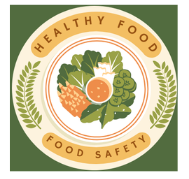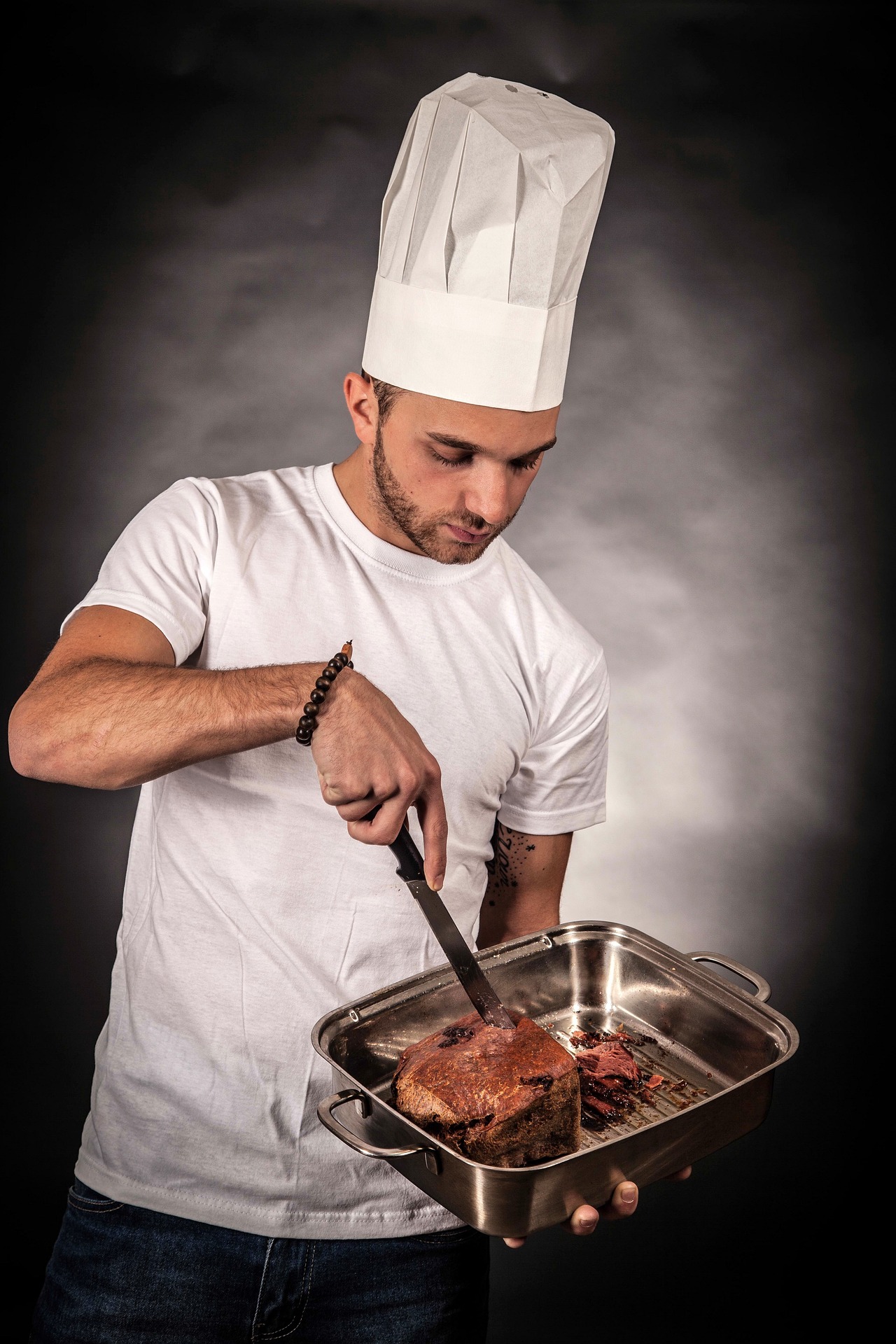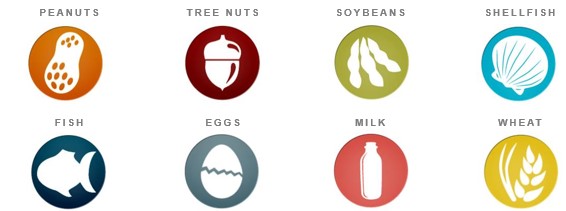Food Handler Training on Food Hygiene and Safety
Today we will talk about food handler, responsibilities of food handler and what food handler must know in order to work on foo processing line.
Food Handler:
Food Handler is the person or employee who works with food like involves in handling of the food, preparation of the food, working on any food production line, cooking the food, distributing the food, serving the food ,packing the food . A food handler can be the one who is working on any big or small food manufacturing plant, working in a cafeteria, kitchen, restaurant or even handling of the food from one place to an other fall under food handler definition.
Food Handler Training:
Food Handler Training is type of education for all the employees working for food manufacturing facilities like companies, cafeteria, kitchen, restaurants, packaging of food or even handling of food to teach them that how they need to work in food manufacturing facility. This will enable them to work properly and make sure that food is safe and free from any contamination.
Food Safety:
Food safety is a scientific field that deals with the safe preparation, storage, and handling of food to prevent foodborne illness. It involves following specific procedures to prevent the spread of harmful bacteria and ensure the safety of the food consumed.
Food Hygiene:
Food Hygiene can be defined simply as “Clean food made by clean people, using clean equipment”
- Protecting food from risk of contamination including harmful bacteria, poison and other foreign bodies
- Preparing food in a safe manner to ensure good health promotion
- Preventing any bacteria present multiplying to an extent which would result in the illness of consumer or early spoilage of food.
Benefits of Good Hygiene:
- Satisfied customers, a good reputation, increased business and brand protection.
- Compliance with food safety legislation
- Less food waste
- Good working condition, higher staff morale, lower staff turnover which promotes increased productivity.
Cost of Poor Hygiene:
- Food poisoning outbreaks and sometimes death
- Food contamination, customer complaints and brand image
- Pest infestation
- Waste food due to spoilage
- The closure of food premises
- Fines and cost of legal action taken because of contraventions of hygiene legislation or because of sale of unsatisfactory food.
- Civil action taken by food poisonous suffers
- Loss of production and food which has to be destroyed
Why do we need Hygiene?
Insufficient hygiene may lead to illness or even death, its very important the proper hygiene is maintained at food manufacturing areas to ensure safe delivery of food to our customers and consumers. By implementing good hygiene practices, food processors can ensure that the food they produce is safe for consumption and reduce the risk of recalls and other food safety issues.
Personal Hygiene?
It is often said that without personal hygiene there in no food safety because even food handlers can contaminate food. All food handler must be trained on the followings and must adhere to these guidelines.
PERSONAL HYGIENE :Before you get to work…
- Take a shower
- Put on clean clothes and footwear, Clothes and footwear can carry bacteria into the plant
- Keep fingernails clean, trimmed and without polish / no artificial nails, Polish or artificial nails can fall off
PERSONAL HYGIENE :Washing hands is the most important food poisoning prevention. Hands need to be washed regularly and immediately
- Before working with food
- After using toilet
- After handling rubbish/waste
- After smoking, coughing, sneezing, using tissue, eating, drinking
- After touching hair or scalp or mouth
PERSONAL HYGIENE :A proper dress code is required for EVERYONE who enters a food-handling area
Every food handler while entering into the food facility or food production/serving area must
- Cover Hair
- Cover beard
- Wear clean protective clothing
- No jewelry
- Keep nails trimmed and filed.
Forbidden behavior in a food-handling environment expected from food handler
- No eating
- No drinking
- No smoking
- No spitting
- No chewing gum
PERSONAL HYGIENE :If you are ill as food handler, Inform your supervisor if you exhibit the any of the following symptoms
- jaundice (yellowing of eyes and skin)
- diarrhea
- vomiting
- fever
- sore throat with fever
- boils or cuts
- discharges from ears, nose or eyes
- excessive coughing or sneezing
PERSONAL HYGIENE IN FOOD PRODUCTION: CONCLUSION
- Food handlers with unhygienic behavior can contaminate food through indirect paths of contamination
- Washing hands is the most effective way to stop the spread of microorganisms
- Ill people must be prevented from handling food
- Personal hygiene can only ever be as good as the provided facilities
- Personal hygiene must be taught and controlled
Food Contamination: Hazards that can contaminate food:
Food can be contaminated by the following four main hazard types. Food that is contaminated with any of these hazards is unsafe and unsuitable to eat.
- Physical hazards(foreign objects) – metal, wood, glass, plastic, etc.
- Chemical hazards – bleach, caustic soda, detergents, pesticides, etc.
- Microbiological – bacteria, viruses, moulds and parasites.
- Allergens – Peanuts , tree nuts ,Milk, Soy, Fish, Shelf, fish, Wheat, eggs
HOW TO PROTECT FOOD FROM CONTAMINATION
- Purchasing from reputable suppliers
- Effective instruction, supervision and training of food handlers
- Maintaining high standard of personal hygiene and good hygiene practices
- Well designed, constructive food premises and food rooms
- Effective pest control
- Separation of raw, high risk food at all stages of delivery, storage, preparation, serving and distribution.
- Effective storage and disposal of waste and unfit food
- Well designed and proper use of equipment’s.
Pest Control:
- Keep them out – report any wholes noted in food premises so that they can be sealed.
- Starve them out – keep food premises clean.
- Throw them out – conducting regular pest inspections or services.
- Don’t give them a home – remove all unnecessary equipment and items.
- Report all pest sightings or evidence of pest activity to your supervisor/Food technologist i.e rats, mice, cockroaches, flies
Be Proactive on Pest Control
- Report or prevent all suspected breaches of food safety.
- Report all evidence of pest activity.
- Implement a cleaning programme. Machine equipment e.g. tray packers must be cleaned properly as it may harbour pests
- Obtain and read a copy of the Food Safety Standards.
- Be aware food hazards are everywhere! Don’t give them any opportunity to contaminate food.
- Always remember – prevention is better than cure.
As a food handler, it is your responsibility to ensure that food for your customers is safe and suitable to eat
Food Poisoning
It is an illness caused by eating contaminated food. It’s not usually serious and most people get better within a few days without treatment. In most cases of food poisoning, the food is contaminated by bacteria, such as salmonella or Escherichia coli (E. coli), or a virus, such as the norovirus.
Illness arise within 36 hours after eating poisonous or contaminated food and may persist for 7 days with
Symptoms:
- Stomach cramps
- Diarrhea
- Nausea vomiting
- Fever and chills
- Headache
- Dehydration
CAUSES OF FOOD POISONING
- Cross Contamination– Cross-contamination occurs when food becomes contaminated with bacteria from another source.
- Bacteria can be transported by hands, utensils, surfaces, equipment raw food and pests.
- Unclean Food Premises
- Poor Pest Control
- Poor Personal Hygiene like dirty hands and clothing, Uncovered cuts and wounds, Long dirty fingernails, Excess jewelry on hands and wrists, coughing and sneezing over food, handling food while ill, not washing hands after going to toilet.
Test for Food Handlers After the Training:
| Question# | Question | True | False |
| 1 | Germs can move on their own and spread to food. | X | |
| 2 | Bacteria can spread through dirty hands, dirty hair and dirty protective clothing to food. | X | |
| 3 | Bacteria is only present on raw foodstuffs. | X | |
| 4 | Food poisoning only causes diarrhea and nausea, and could surely not kill someone | X | |
| 5 | Food poisoning is caused by bad bacteria which are spread to foodstuffs through the food handler. | X | |
| 6 | Personal hygiene and good practices could prevent the spreading of bacteria to foodstuffs. | X | |
| 7 | Personal hygiene is to comb your hair and to wear make-up every day. | X | |
| 8 | Personal hygiene is to ensure the your hands and fingernails are always kept clean when you handle foodstuffs. | X | |
| 9 | Personal hygiene is not fulfilled if your protective clothing is dirty and tattered. | X | |
| 10 | When you wash your hands, you must use soap and water and also wash between your fingers and up to your elbows. | X | |
| 11 | You don’t need to wear a head covering if your hair is cleanly washed and you have no problem of losing your hair. | X | |
| 12 | You may handle foodstuffs with rings on your fingers as long as you wash your hands regularly and underneath the rings. | X | |
| 13 | If you are feeling that you have some sort of illness you must stop handling food and report it to your supervisor and visit a doctor | X | |
| 14 | The most important good practice of the food handler is to frequently wash your hands. | X | |
| 15 | You must wash your hands before your tea break end before you smoke a cigarette. | X | |
| 16 | After you have handled raw meat and raw fish and eggs you must wash your hands. | X | |
| 17 | It is not necessary to wash your hands as long as you blow your nose with a handkerchief which is clean and whole. | X | |
| 18 | Do not wipe sweat from your forehead with your hands, because your hands will be contaminated with germs. Rather use your sleeve. | X | |
| 19 | After you have washed the floor or touch any dirty rags, you must wash your hands. | X | |
| 20 | After you have peel potatoes you first must wash your hands before you start cooking them. | X | |
| 21 | It is not necessary to wash your hands if you have only put out the rubbish bin to be empty. | X | |
| 22 | It is better to rather lick off your fingers than to wipe your dirty hands against your protective clothing. | X | |
| 23 | You must wash your hands between handling of raw foodstuffs and cooked foodstuffs. | X | |
| 24 | Sputum makes kitchen equipment nice and shiny and also washes off the germs. | X | |
| 25 | It is better, when you are tired, to rather sit down on a working surface than to sit on the dirty floor with your protective clothing. | X | |
| 26 | Smoking can not spread germs to foodstuffs; it is only a bad habit. | X | |
| 27 | It is better to rather lick a food tong clean than to wipe the food tong clean with a dirty rag. | X | |
| 28 | After you have used a spoon to taste the food you must first wash the spoon before you use it the food again. | X | |
| 29 | It is totally prohibited to taste food. | X | |
| 30 | It is better to rather dish up food with your bare hands than a dirty spoon or food tong. | X |





